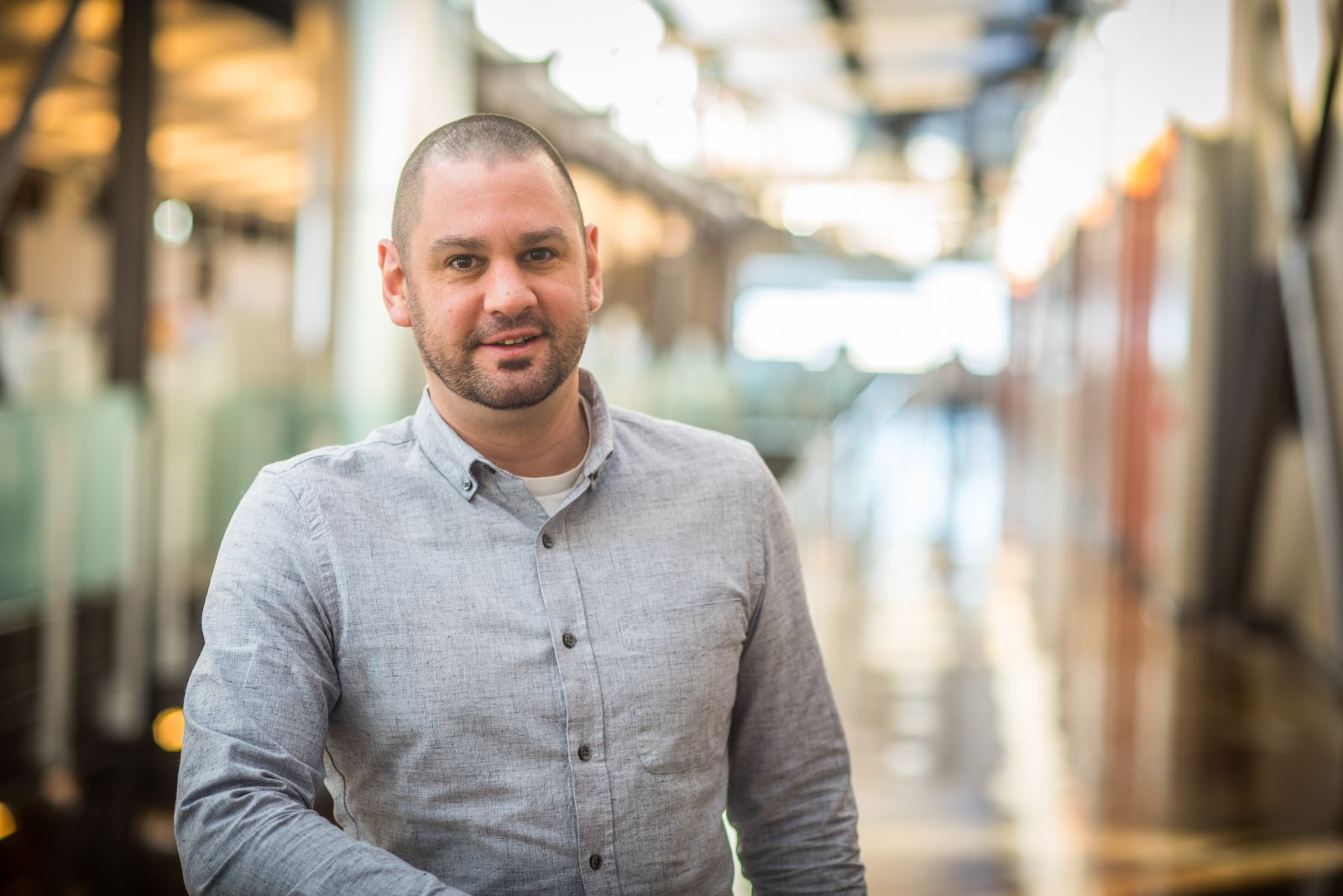
By Alice Allen and Tanner Bohman
In December, almost 200 countries inked an agreement to reduce CO2 emissions through the use of renewable and clean energy sources. This historic meeting in Paris marks a step forward in securing clean air for the future. University of Idaho Assistant Professor Dr. Robert Borrelli believes that nuclear energy plays a critical role in achieving this goal.
New Jersey-born Borrelli first became interested in nuclear energy when he was introduced to the topic of waste management. About that time Congress approved Yucca Mountain, located in Nevada, to be the location for a nuclear waste repository. This piqued his curiosity.
“I was interested in the topic so I looked into it, not just waste management, but the entire fuel cycle,” he said.
Borrelli attended Worcester Polytechnic Institute in Massachusetts where he earned a bachelor's in mechanical and nuclear engineering and a master’s in civil and environmental engineering. Eager to continue his education, he applied to the prestigious doctoral program at University of California Berkeley where he was awarded a Ph.D. in nuclear engineering a few years later.
After his Ph.D., Borrelli expanded his research skills through a post-doctoral position and a stint in Japan. Returning to the U.S. and to sunny California, Borrelli was able to pursue another passion: teaching. He taught engineering courses for a few years at San Francisco Bay Area Community College and gained a real appreciation for the value of the community colleges.
“Some people need coaching in their math skills, or may need to learn a little bit of coding,” Borrelli said. “The value of a community college is to increase the student’s confidence in his or her abilities and to prepare them to attend a university.”
Community colleges also help to develop an educated and highly skilled workforce, he added.
“You don’t have to go to a community college to pursue an even higher education,” Borrelli said. “There [are] a lot of people who go to earn certificates that show they are experts in a solid work suite. Those who go that route can also find a good job with good pay.”
As he was helping others prepare for their futures, Borelli continued to hone his résumé. He did his homework and reviewed faculty positions at universities to find the right fit for his goals. University of Idaho’s Idaho Falls Center offered an ideal job: a teaching and research position based at the Center for Advanced Energy Studies. The proximity to the Idaho National Lab and the chance to continue to mentor students made it a good fit. He applied and was very happy to receive a job offer. He and his dog Panda picked up stakes and moved to Idaho last summer.
“I teach Nuclear Engineering and Risk Assessment, and I actually have students from Idaho State University and Brigham Young University-Idaho as well,” Borrelli said. “The ability for students from other colleges to attend classes offered by the University of Idaho is a great system to have, and it’s helping them complete requirements for their school’s program and the prerequisites for the graduate program here.”
Since moving here in July, Borrelli has appreciated his experience at UI and in eastern Idaho. He purchased his first house and is very engaged in home renovations, experimenting in the kitchen, traveling and enjoying the great outdoors with Panda.
“I’ve only taught two classes, but so far my experience with the students has been good, the faculty have been a great help and I’ve been able to collaborate with a few of them to create research proposals,” says Borrelli. “The only thing I would like to see change is the national awareness of the nuclear engineering program we offer. UI has good resources here, and it would be great if everyone knew that UI was one of their options.”
Borelli is candid in saying that the journey that lead him to Idaho was both long and difficult. One of his goals as a teacher and mentor is to help his students have a bit of an easier path.
“Of course I’m going to do what I can to help, and so is every other professor, but what I hope is that I can quickly teach my students to find an advisor that understands they don’t always know where to go or what to look for. If an advisor isn’t available, then students need to avail themselves of the university's resources so that they’re not struggling to get by. Trying to do it all on your own can be very debilitating.”
To help students get started with networking and finding more opportunities to learn about nuclear engineering and waste management, he is inviting them to follow him on Twitter.
“Get active on Twitter, it’s a quite underused networking tool. Follow me and see who I follow and then follow them. Tweet about things that are interesting to you about nuclear engineering, but don’t just tweet an article out, make sure to add your own comments. Make sure to respond to those you follow too. You can build connections with those who have already completed the educational path you’re on or will be on, and they can be good resources during and after your schooling.”
You can follow Robert Borrelli @TheDoctorRAB on Twitter.